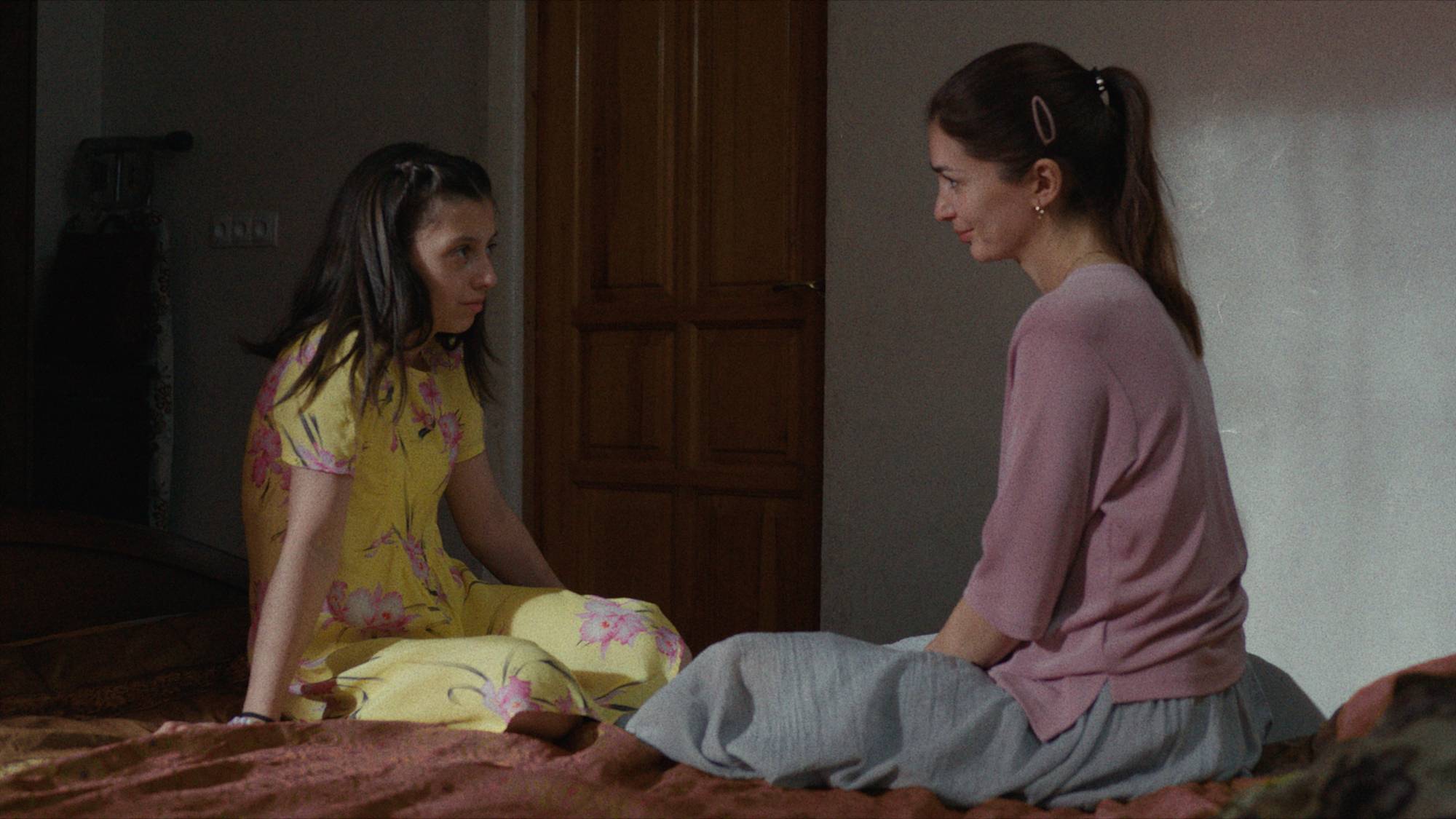Malika
Malika
VERDICT: Natalia Uvarova's 'Malika' is a levelheaded examination of a mother and daughter relationship on the verge of a new marriage.
There’s a popular African proverb that’s useful in thinking about Malika, Natalia Uvarova’s debut feature film showing at the Busan International Film Festival. “When two elephants fight, the grass suffers.”
Of course, there are no animals actually jousting in the film—and although one agricultural item does suffer, another one is rescued from peril before long. In any case, the point of that proverb is one of the central themes of this Kazakhstan-set story involving a child, her mother, and her father. The latter two, formerly married, are the proverbial duelling elephants.
At first, the story focuses on Malika and her mother, a winsome pair living in harmony before tangentially related events upturn everything. In one of these events, a friend tells Malika that the nascent romance between her mother, Roza, and a seemingly pleasant man could be the beginning of an unwanted change in Malika’s life. If the romance transforms into a marriage, as these things sometimes do, Malika would have to go live with her father. This isn’t a possibility Malika intends to face.
In the scene in which this untoward information is passed, Malika tries to counter her friend’s ostensible pessimism by citing examples of parents who have gotten remarried without reconfiguring the lives of their kids. The tactic doesn’t work because, as she’s reminded, the customs of her family—they are Ingush—and those of Kazakhstan, the country they now inhabit, aren’t the same, even if Islam is, to some degree, a unifier. Apparently, Kazakhs are a lot more flexible in matters concerning divorce. The story doesn’t exactly tell us why kids have this much information on such adult concerns, but then precocity is baked into the tale.
The other event that triggers the story’s conflict involves Malika’s father, a not particularly agreeable man who shows up at his ex-wife’s home and, finding her absent, decides to wait for her return. Word has reached him about Roza’s new romance and he has appeared to tell her that he will take his child should Roza opt for marriage. It is the film’s first charged scene but as Roza is a mostly placid character, sparks do not really fly.
The theme of this lightly dramatic film emerges from those two scenes: the thorny nature of Ingush Islamic arrangements in the wake of a separation. Apparently, all of the decisions made on the subject of divorce and its debris are the purview of men. Which leads to a question that isn’t answered directly by Uvarova: Is Malika critical of those customs? It’ll appear so in theory but the answer is elusive. That is, unless the artistic presentation of the supposed the facts of a thing can be taken as criticism.
In other words, if it’s criticism, Malika isn’t cutting enough to provoke angry diatribes. At no point does the specific Ingush traditional norm—a remarried woman will lose custody of her child to its father—come into Uvarova’s screenplay’s crosshairs. It’s somewhere in the background. Even Malika’s father is portrayed as a brash but rather honourable man, who is merely doing what is right according to the dictates of his culture. Uvarova deserves praise for restraint because there is a version of this story in which his jealousy is overplayed into overwrought villainy.
But even as the film maintains a levelheadedness throughout, it does take away power from the mini-committee of men for the story’s final decision and nobody heads to court here. Which reminds us that Malika isn’t set in the U.S. and these adults are neither the litigious Americans from Kramer vs Kramer nor the complicated Iranians from A Separation. The move to put the female characters in control of their own fate does feel political on paper but onscreen it reads emotional, given that moving forward will mean Roza has to contend with the happiness of Malika and vice versa.
As the person shaping what gets seen by the audience, Uvarova (as both director and co-writer with Milana Misieva) doesn’t push the envelope in any direction philosophically, a tribute once again to her restraint, considering the many low-hanging ideological fruits her premise provides. Unfortunately, that restraint is one reason not many viewers will remember her debut feature in time. Hopefully, her subsequent work will provide even more reason for that to happen.
In the meantime, Malika can expect to have a decent run at festivals around Europe and Asia. It should also do quite well for families on TV thereafter. Aigul Nurbulatova’s colourful images are quite attractive and the film’s lead actresses (Izabella Khampieva and Marena Kharsieva) are delightful together, even when their characters are sparring.
Director: Natalia Uvarova
Cast: Izabella Khampieva, Marena Kharsieva
Executive Producer: Artem Vasilyev, Pavel Doreuli, Alexander Plotnikov, Ivan Golomovzyuk
Screenplay: Milana Misieva, Natalia Uvarova
Cinematography: Aigul Nurbulatova
Production Company: Lazy Sunday, Studio Metrafilms Moldova, Anykey, Dear Silence
Venue: Busan International Film Festival (Vision)
Running time: 94 min.
Language: Kazakh

